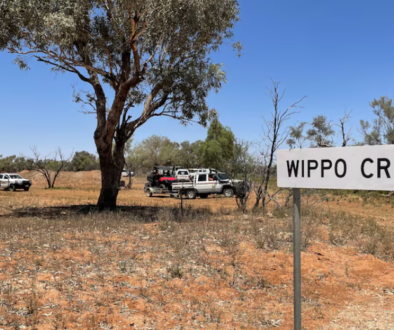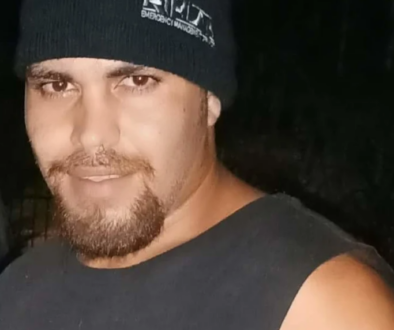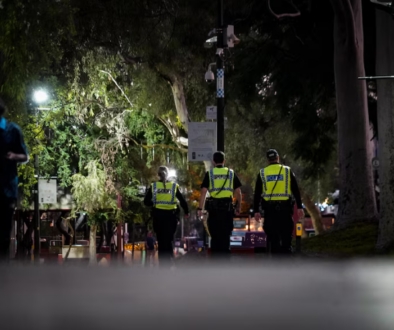Inquest into the disappearance of Jeremiah Rivers begins in Brisbane as loved ones speak out
Key points:
- Jeremiah Rivers went missing on a pig hunting trip in Queensland’s south-west two years ago
- The inquest into his death is examining whether foul play occurred and the adequacy of the police investigation
- His family wants justice and to know what happened to him
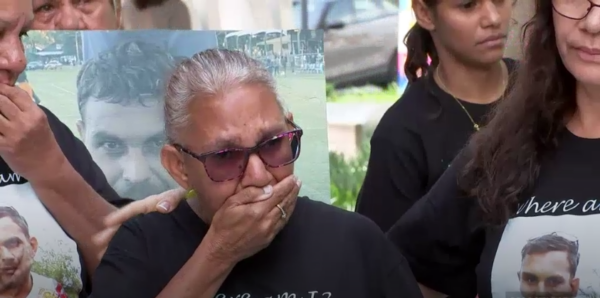
A man who went missing in Queensland’s south-west on a pig hunting trip two years ago didn’t know the real purpose of the journey was to transport three pounds of cannabis to Darwin to sell to remote communities, an inquest has heard.
Jeremiah ‘Jayo’ Rivers was travelling with a group of seven men when he walked away from a campsite at Wippo Creek near the remote town of Noccundra in October 2021.
The 27-year-old Indigenous man, originally from the East Kimberley and raised in the Northern Territory, was never seen again, despite an extensive land, air, and water search.
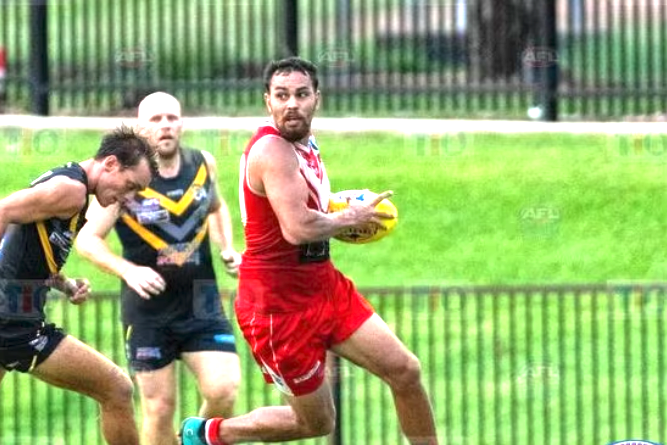
The time frame for survival was estimated to be seven days without water, and police terminated the search on the basis that if Mr Rivers was lost, there was no likelihood of him being alive.
An inquest, led by Coroner Donald MacKenzie, is examining the circumstances of Mr River’s death and whether foul play occurred, as well as the adequacy of the police investigation.
It heard from Joe Joe Kantilla-Gaden, who described himself as Mr River’s brother, and was one of the organisers of the trip.
Their cousin, Matthew Peris, told police he received a call from Mr Rivers the night before his disappearance, begging him to come pick him up after a fistfight between him and Mr Kantilla-Gaden.
In often fierce cross-examination from counsel for the Rivers family, Stewart Levitt, it was suggested Mr Rivers discovered the real reason for the trip at the campsite he went missing from.
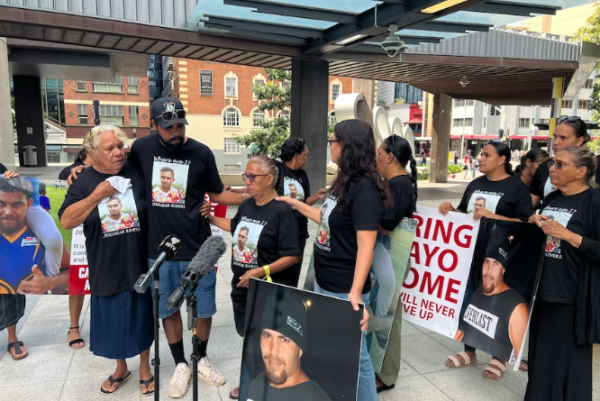
“Jayo found out about the drugs and wanted out and you said you can’t get out, because you wanted a share of the $72,000 you’d make from selling the three pounds,” Mr Levitt said.
“There was an argument between him and everyone else and I suggest that caused everyone to be angry with him.”
Mr Kantilla-Gaden disputed that account and that a fight had even occurred, instead stating he had been trying to stop Mr Rivers from walking off, as he’d been up for multiple days, drinking and smoking methamphetamine.
“He said ‘you’re getting like mum now, worrying too much’, and I said ‘if anything happens to you it’s coming back on me 10 times harder’.”
Mr Levitt noted everyone on the trip had knives and there were several rifles in the cars, asking Mr Kantilla-Gaden if he heard a gunshot around 7am on the morning of Mr River’s disappearance.
“No,” he replied.
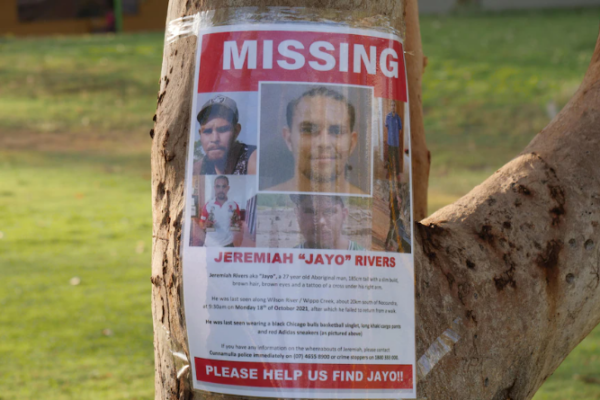
Interaction with police examined
The group had travelled from Balranald in southern New South Wales, where Mr Rivers had been playing football, to Darwin.
The inquest heard the trip had been organised to hunt pigs and teach five men from Melbourne about First Nations culture and living off the land.
There were COVID-19 restrictions at the time and the group had cut through a border fence to enter Queensland.
After Mr Rivers went missing, Mr Kantilla-Gaden said he and the rest of the men searched through the night for him on foot and in vehicles.
When they couldn’t find him, Mr Kantilla-Gaden and another member of the group, Matthew Moore, went to a nearby petrol station and were intercepted by police.
Mr Kantilla-Gaden was upset by the officer’s demeanour, who seemed not to care that his brother was missing when he told him, instead escorting them the 200 kilometres back across the border.
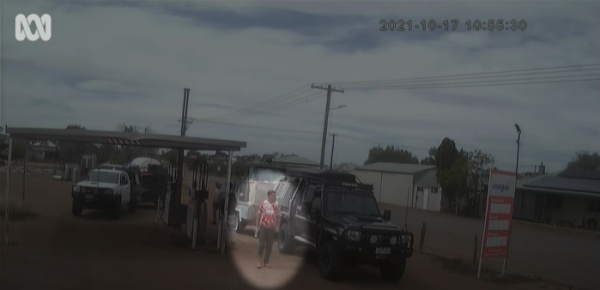
Mr Levitt disputed that, stating the officer had been “very kind” to the pair.
“You admitted you drove through the border, you were COVID positive, you knew it was illegal and could face a fine, but he actually offered to pay for your petrol to go back to New South Wales,” Mr Levitt said.
Mr Moore was questioned as to why the men relocated the camp hours after Jayo disappeared.
“Do you think that was sensible given Jayo had wandered off and would need to come back to where you were?” Mr Levitt asked.
Mr Moore replied: “It was so we were closer to the road and could see the cars coming past, he would’ve seen the second camp from the first one as we had a big bonfire.”
Mr Moore denied having any involvement in the death and was asked what he thought happened to Jayo.
“I try not to put scenarios in my head, it’s not good for my mental health,” he said.
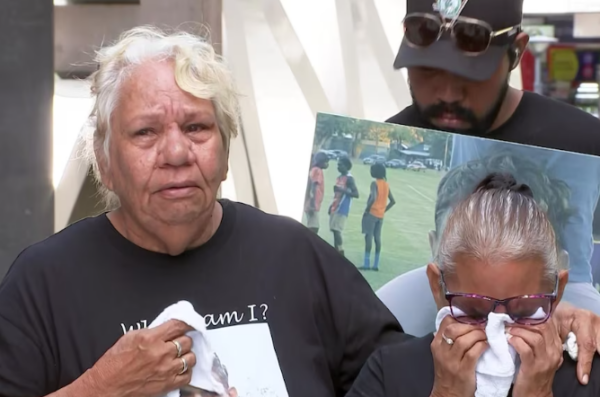
Family demand justice
Outside court, the mother of Mr Rivers called for justice as she fought back tears.
“I’m just disgusted with the police … I’ve had no communication,” Joanne Rivers told media.
“I just want my son home, and I want justice for him.”
“We just want to know the truth of where he is,” grandmother Anne Rivers said.
“It has caused this family a lot of pain and heartache.”
Loved ones want answers
The case has caused deep heartache in the Indigenous community of Warmun and the wider East Kimberley region, where many of the Gija man’s relatives live.
Mr Rivers’ loved ones spent months searching the campsite where he was last seen, near Wippo Creek near Noccundra in south-west Queensland.
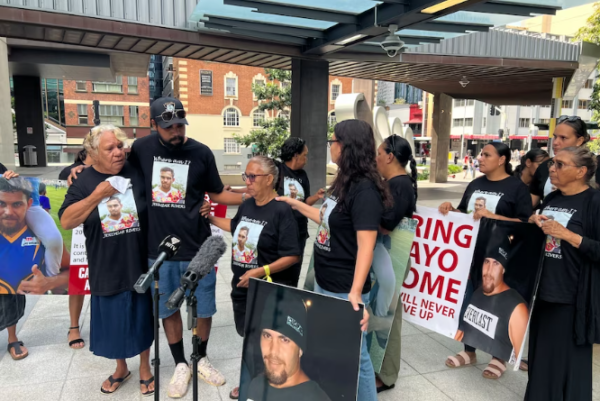
“We just need closure, we need to know what happened to him,” said Brenda Garstone, a relative of Mr Rivers.
“It’s unexplainable and we want answers today, real answers and factual evidence.
“We want accountability – it’s not right that he’s still missing.
“We came a long way for this day.”
Dina Lapurdi, the missing man’s older sister, said “we want to know where he is and what has happened”.
Angie Bedford, Mr River’s great aunt, said she hopes the inquest will deliver answers.
“We love and miss him, we want justice,” said Ms Bedford.
“These boys that went out with him know what happened.”
The five-day inquest will hear from fifteen witnesses, including all of the men on the trip and the police officers who worked on the case.
Contact us
Please provide a brief description of your claim.

